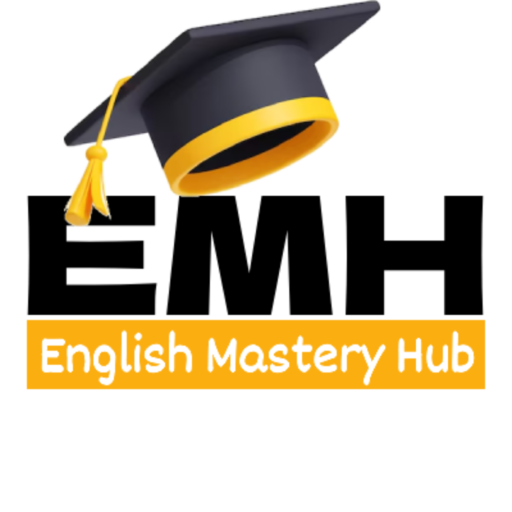
IELTS Speaking: How to Develop Complex Answers for a Higher Band Score
Article Level: C1-C2
Explanation: This article explains how IELTS candidates can develop complex and coherent answers using structured techniques, cohesive devices, advanced vocabulary, and varied grammar forms to achieve a higher Speaking band score.
Commonly Used Words from the Article
1. Nuanced /njuːˈɑːnst/ (adj): Subtle and precise in meaning.
She provided a nuanced analysis of the political situation.
2. Cohesive /kəʊˈhiːsɪv/ (adj): Forming a united whole.
His essay was well-structured and highly cohesive.
3. Immersive /ɪˈmɜːsɪv/ (adj): Providing a completely engaging experience.
The VR game offered an immersive experience of ancient Rome.
4. Insight/ˈɪn.saɪt/ (noun): A deep understanding of a person or situation.
The seminar provided valuable insights into climate change.
5. Sophisticated /səˈfɪstɪkeɪtɪd/ (adj): Highly developed or complex.
She gave a sophisticated answer to the examiner’s question.
Phrasal Verb
- Set up /ˈsɛt ʌp/ (phrasal verb): To prepare or arrange something.
Workers are setting up equipment for the fireworks show.
Idiom
- In full swing /ɪn fʊl swɪŋ/ (idiom): When something is at its most active or busy time.
The New Year’s Eve celebration will be in full swing by midnight.
Audio File of the Article
Read more: IELTS Speaking: How to Develop Complex Answers for a Higher Band Score

IELTS Speaking: How to Develop Complex Answers for a Higher Band Score
Achieving a high band score in the IELTS Speaking test requires more than just fluency; it demands the ability to produce complex, nuanced answers. Many candidates struggle to expand their responses beyond simple sentences, which can limit their potential scores. Understanding how to develop complex answers can significantly enhance both your coherence and lexical resource, two of the key criteria in the IELTS Speaking assessment.
One of the most effective strategies is to use the “Part-Answer-Example” approach. Start by directly addressing the question, then elaborate your response with additional details, and finally, illustrate your point with a concrete example. For instance, if asked, “Do you prefer reading books or watching films?”, instead of replying with a simple preference, you could say: “I generally prefer reading books because they allow me to immerse myself in the narrative and explore the characters’ inner thoughts. For example, last month I read a novel that offered such a profound psychological insight that it changed the way I perceive human behaviour.”
Another crucial technique is the use of cohesive devices to link ideas smoothly. Words and phrases such as moreover, consequently, on the other hand, and as a result help to structure your answers logically, demonstrating your ability to connect ideas coherently. Additionally, employing a variety of sentence structures, including conditionals, relative clauses, and passive constructions, can enrich your responses. For example, “Had I known about the seminar earlier, I would have attended, as it promised to provide invaluable insights into sustainable urban development.”
Expanding vocabulary is equally important. Avoid repetitive words and strive to use precise terms that convey subtle differences in meaning. Paraphrasing the question is a powerful technique; it shows examiners that you can manipulate language flexibly. For example, instead of repeating “I like films”, you might say, “I am particularly fond of cinematic productions because they combine visual storytelling with auditory elements, offering a more immersive experience than literature alone.”
Finally, practising speaking under timed conditions is essential. Recording yourself and analysing your responses can help identify areas for improvement. During practice, aim to naturally integrate the highlighted phrasal verb and idiom: workers often set up equipment for events, while lively discussions at seminars can quickly get in full swing . Integrating such expressions organically demonstrates advanced proficiency and can impress examiners.
In conclusion, developing complex answers in IELTS Speaking involves structured responses, cohesive devices, diverse sentence structures, advanced vocabulary, and regular practice. By systematically applying these strategies, candidates can significantly increase their chances of achieving a higher band score, transforming simple answers into sophisticated, exam-ready responses.

Grammar Notes
-
-
Relative clauses: Used to provide extra information about nouns.
Example: “a novel that offered such a profound psychological insight”.Conditionals (third conditional): Used to discuss hypothetical situations in the past.
Example: “Had I known about the seminar earlier, I would have attended.”Passive voice: Used to emphasise the action rather than the subject.
Correct Example: “Equipment is being set up for the event.”Cohesive devices: Words like moreover, consequently, as a result are used to connect ideas smoothly.
-
Join Our FREE English Grammar Course and improve your grammar skills!

Five Questions Based on the Article
-
What is the “Part-Answer-Example” approach, and how does it help in IELTS Speaking?
-
Which cohesive devices are recommended for linking ideas in speaking responses?
-
Why is paraphrasing important in the IELTS Speaking test?
-
Give an example of a sentence using a relative clause from the article.
-
How can practising under timed conditions improve your IELTS Speaking performance?
Join Our Weekly English-speaking Class and improve your speaking skills!

We’d love to hear your thoughts! Join the conversation by leaving a comment below. Sharing your insights, questions, or experiences can help you connect with others in our English learning community. It’s a great way to practice your English skills, engage with like-minded individuals, and improve together. Don’t be shy—jump in and let’s keep the discussion going!

 EnglishMasteryHub
EnglishMasteryHub